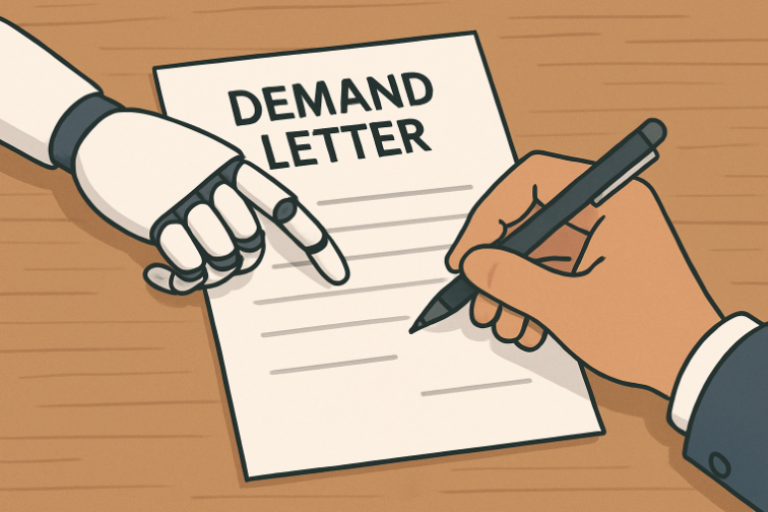How Lawsuits Shape Democracy

In vibrant democracies, the right to seek justice through the courts forms a cornerstone of civic engagement. Legal disputes, whether they address widespread policy questions or protect individual freedoms, have the power to reshape societies and reinforce democratic ideals. Lawsuits provide citizens with a structured method to challenge government overreach, clarify the implementation of rights, and ensure that elected officials do not act with impunity. Resources like https://www.naacpldf.org/ldf-trump-lawsuit-tracker/ monitor ongoing cases, demonstrating the significant role litigation can play in keeping the public informed and involved.
While some lawsuits impact policy—encompassing issues from desegregation to voting rights—others protect individual rights and reinforce democratic norms. Successful litigation has driven systemic reform and social justice, while courts provide a legal framework for disputes, maintaining essential checks and balances. Legal action also encourages transparency and accountability from policymakers, thereby fostering a more robust public debate. But courts must remain accessible; efforts to restrict access threaten democracy. Vigilance is vital to striking a balance between power and rights. From civil rights to election challenges, lawsuits have enforced rights and clarified constitutional roles. Brown v. Board of Education exemplifies how litigation can dismantle unjust laws and inspire activism. Such cases establish legal precedents, shaping future disputes and guiding legislation, as courts define boundaries for years to come.
The Rise of SLAPP Suits
Not all litigation serves the public good. Strategic lawsuits against public participation—commonly called SLAPPs—are designed to intimidate and silence critics through burdensome and costly legal battles. Frequently targeting journalists, activists, and everyday citizens, SLAPPs undermine both free speech and robust political participation. For those who speak out on controversial issues or expose misconduct, the threat of a frivolous lawsuit can be a chilling prospect. To combat this, a growing number of states have enacted anti-SLAPP statutes, providing for early dismissal mechanisms and the recovery of attorneys’ fees for victims. These laws not only protect individuals but also safeguard the democratic principle that debate and dissent are essential to progress. Expanding such protections nationwide could reduce the misuse of courts as tools of intimidation. Ultimately, a strong legal shield against SLAPPs ensures that truth-telling and civic engagement remain at the core of public life.
State Courts and Election Litigation
Election-related legal disputes have surged in recent years, especially at the state court level. With challenges to voter ID laws, ballot access criteria, and election administration procedures, these cases can dramatically influence the democratic process. On one hand, election litigation can uphold voting rights and restore public trust when processes are threatened; on the other, the flood of lawsuits can strain court systems and inadvertently sow confusion about election outcomes.
Striking the right balance is crucial. Courts must protect the rights of all voters while ensuring elections remain orderly and credible. The recent surge in voting-related lawsuits underscores the need for legal and electoral reforms that foster public confidence without overburdening judicial resources.
The Role of Citizens in Legal Actions
Lawsuits rely not only on legal experts but also on engaged citizens and advocacy groups committed to pursuing justice. When individuals or community organizations take legal action, they compel policymakers to address pressing issues, ranging from environmental justice to government transparency and accountability. This grassroots activism has led to reforms at all levels of government and kept courtrooms accessible for marginalized voices.
Such participation reminds us that legal tools are not just for institutional actors, but for everyone as well. By collectively demanding accountability, citizens reinforce shared governance and demonstrate that democracy thrives when power is held accountable by the people it serves.
See also: The Best Platforms to Buy Instagram Likes
Notable Cases in Democratic Litigation
Historic and recent court decisions have shaped the contours of democracy. In Louisiana v. Callais, the U.S. Supreme Court addressed complex issues around redistricting and constitutional protections, weighing the reach of the Voting Rights Act and its application to state-drawn districts. The ripple effects of such cases extend far beyond the states involved, influencing legislative behavior and future interpretations of constitutional principles. For more information on this case, please visit the NAACP Legal Defense Fund’s website.
Other significant cases—such as Shelby County v. Holder—have recalibrated federal oversight of state election laws, sometimes narrowing vital protections. Such rulings demonstrate how legal battles can both propel progress and create new hurdles, depending on the outcomes and the courts’ interpretations.
Challenges and Criticisms
Despite their benefits, lawsuits as a mechanism for democracy are not without flaws. Critics highlight the phenomenon of judicial overreach, warning that when courts become the primary venue for policy debates, legislative intent and executive authority can be compromised. Others note that the high cost and lengthy duration of legal proceedings can shut out those without significant resources, leaving injustices unchallenged and barriers to justice intact.
An overburdened court system, prolonged delays, and inconsistent outcomes further complicate the equation. Careful reforms and greater investment in access to justice—such as pro bono initiatives and court modernization—are essential to ensuring that the legal system remains a fair and effective tool for all.
Conclusion
Ultimately, lawsuits play a crucial role in democratic societies by providing a means for citizens to seek redress, hold the powerful accountable, and advocate for systemic change. The ongoing evolution of litigation—whether in response to threats from SLAPP suits, increased election disputes, or landmark precedents—reflects the vitality and adaptability of a healthy democracy. Continued vigilance, robust anti-SLAPP protections, and court accessibility are essential to ensuring that the promise of justice remains a reality for every citizen.

